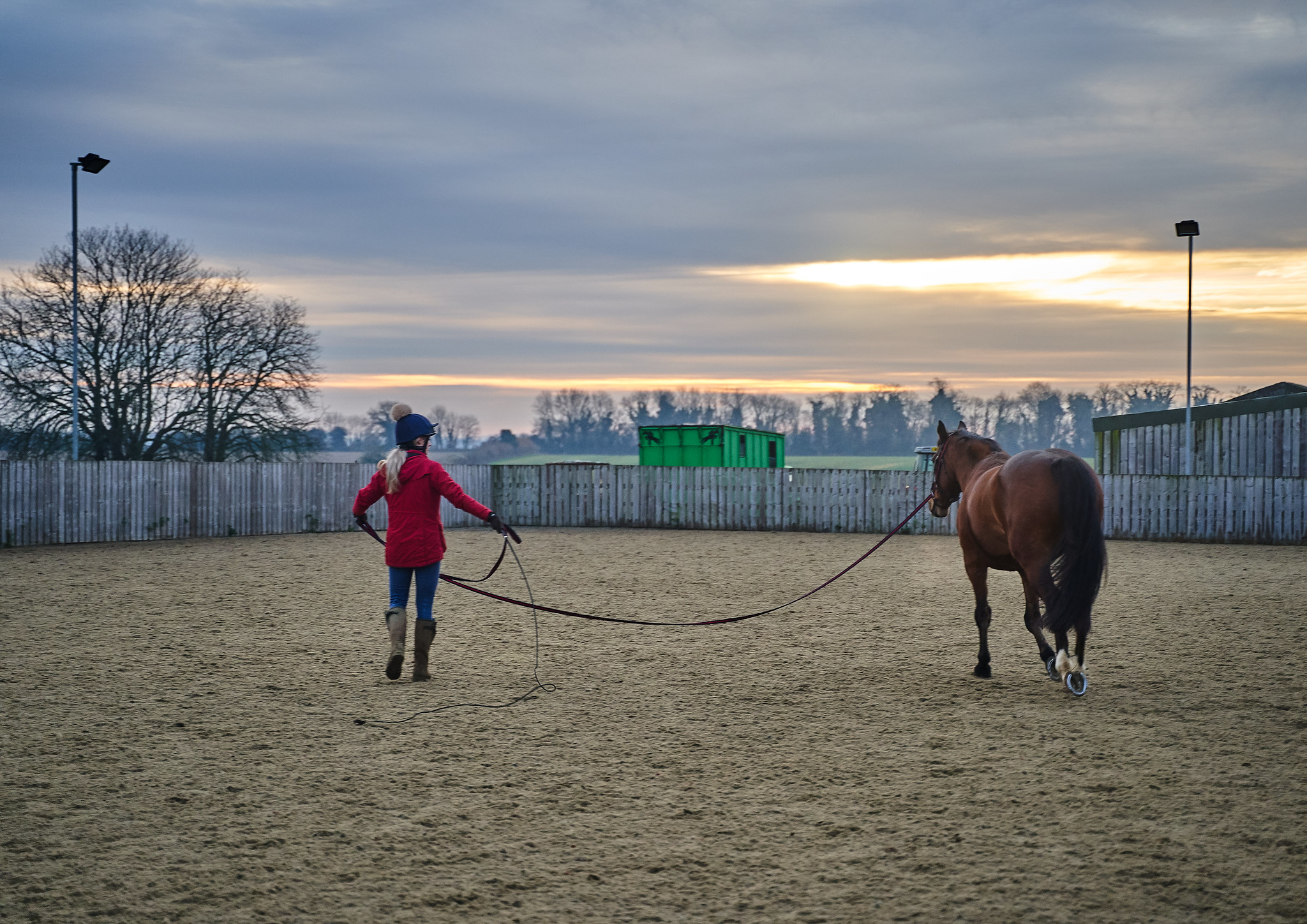New foundation degree launched to try and help fill skills gap in equine management

21 June 2024
A shortage of practically-skilled people to work in managing horses and running equine yards has prompted the Royal Agricultural University (RAU) to launch a new two-year foundation degree course.
The University’s new Foundation Degree (FdSc) in Equine Management, which is recruiting students for this September, will offer students the opportunity to build their knowledge and skills in horse care and management, covering all the required practical skills for the British Horse Society’s level 3 Groom's qualification, as well as teaching them equine science and business management skills.
Course leader Tracy Bye, Lecturer in Animal Science at the RAU, said: “We know that there is a staffing crisis across all parts of the equine industry at present. Looking after horses is a real labour of love - usually involving unsociable hours and hard physical work - and historically there have been issues with pay and conditions which have turned people away from the industry.
“Obviously, as a university, we are here to provide teaching and we want students to sign up to our programmes but, if we're not designing our programmes to support the long-term sustainability of the industry, then we are not doing our job properly.
“Graduates of BSc equine courses usually have aspirations for more senior roles rather than the more ‘hands-on’ positions where a lot of the current staffing issues are seen. They may work in these roles as a gap year, but it is not where their long-term aspirations lie which then leaves a gap in the longevity of these roles.”
The new FdSc course has been designed to blend the scientific aspects of equine anatomy, veterinary science, and nutrition – as well as the practical horse experience, with students completing weekly practical duties at the University’s own Fosse Hill Equestrian Centre – with teaching about how to manage a business.
Tracy added: “The British Horse Society does a great job of providing industry-leading practical qualifications, and we have built the practical part of the course around these, but we also want to prepare students with the business knowledge and skills to improve working practices within the industry.
“You will never get away from the long hours and physical work but there is a lot that can be done to provide staff with better working conditions, better welfare, and therefore better job satisfaction, so that they want to stay in the industry and shape it for a sustainable future.”
For those who complete the FdSc course, there is the option of a one-year top-up course to achieve a full BSc (Hons) qualification. Graduates following this course have gone on to successful careers including lecturing in equine science, working as an equine journalist, nutritionist, and scientist as well as into the fields of racecourse and yard management, and horse sports administration.
The University also offers a three-year BSc in Equine Science and Business course which has been refreshed for this September. After the first year studying equine science and business, students have the opportunity to choose to continue with equine science and business, or include elements of either Agriculture or Bloodstock and Performance Horse Management into the course.
RAU Associate Professor Simon Daniels, who leads the BSc course, said: “For students on the three year BSc programme who choose to follow the Bloodstock and Performance Horse Management route, there will also be a study tour to Ireland to explore the Irish bloodstock industry, as a comparison to the UK, but, whichever path they choose, there will be plenty of industry visits and industry-leading guest speakers allowing students to learn from the very best.
“The RAU has a strong reputation for developing highly-skilled, sought-after, employable graduates from a diverse range of backgrounds and we are proud that graduates from this course have gone on to work at prestigious companies such as Plusvital Equinome, Haygain, Tattersalls and The National Trainers Federation.”
More information on both the Foundation Degree (FdSc) in Equine Management course and BSc in Equine Science and Business can be found at https://www.rau.ac.uk/courses/subject-areas/equine-management-and-science/equine-degrees.
Tracy concluded: “By introducing our new foundation degree, we are aiming to produce graduates who are not only able to take on supervisory or leadership roles within the practical side of the equine industry, but who can also influence and build a better industry for those coming up behind them.”